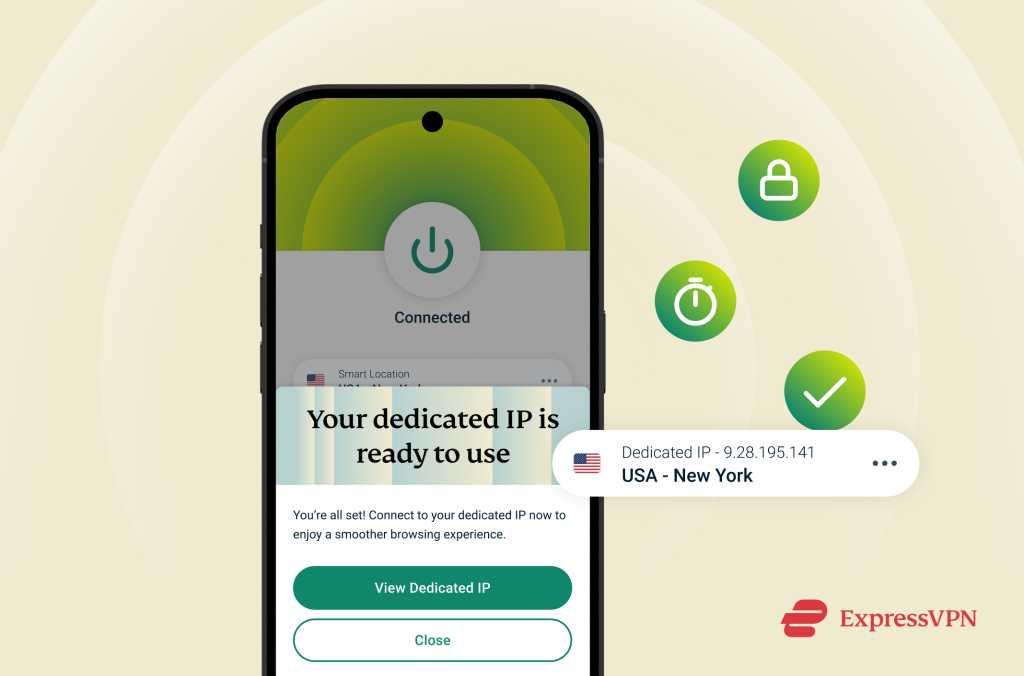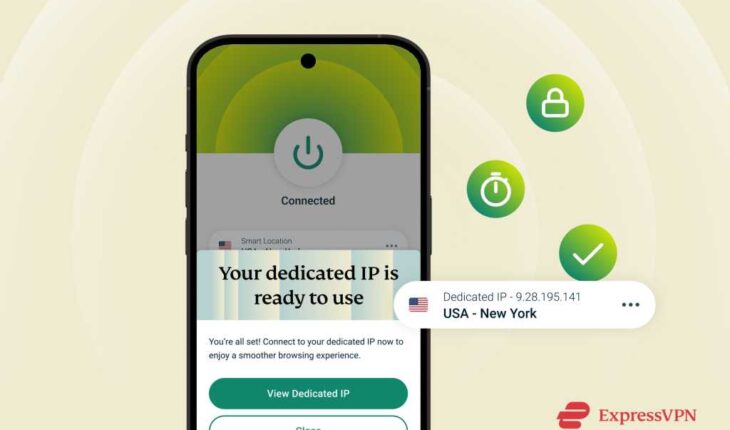
ExpressVPN continues its productive year with the roll-out of its new dedicated IP feature. With the goal of total anonymity, ExpressVPN promises that it cannot link the dedicated IP to the user—something that has long been an issue with dedicated IPs.
The new feature will be an optional add-on service to ExpressVPN’s main subscription plan. It is currently available for Android, iOS, and Windows, with further platform availability expected in the near future.
Users will have the option to choose from dedicated IPs in 29 locations across 22 countries worldwide. The majority of which are located in Europe and North America. Pricing for the add-on service starts at $3.49 per month.
The first dedicated IP of its kind
The new feature provides users with a unique, static IP address that is designed so that neither third parties nor ExpressVPN can trace the dedicated IP address back to you.
Commenting about the aim of the new feature, Samuel Bultez, head of product at ExpressVPN said, “Many of our users have requested the option of having a dedicated IP, and we’re glad to have developed a unique engineering solution to address the privacy concerns around traditional implementations of dedicated IP.”
The innovative design “incorporates robust security controls and a transparent, open-source approach to develop a best-in-class dedicated IP offering.”
The cornerstone of ExpressVPN’s new dedicated IP address offering is Zero-Knowledge IP Allocation. This means that IP addresses are allocated privately and cannot be monitored. Adding to the anonymity is the use of Blinded tokens, which are issued by a server without the server recognizing who they are assigned to.
Additionally, ExpressVPN will employ AWS Nitro Enclaves to handle sensitive operations via dedicated CPU cores and memory isolation.
This all might sound rather highbrow, but ExpressVPN wants users to know about these behind-the-scenes security and privacy measures in order to provide total transparency. Along with the release of the new dedicated IP address service, the VPN company even published a technical white paper to document and explain the architecture.
“With the release of our white paper, we’ve gone a step further to document this process, providing an in-depth look at our technical architecture, security measures, and privacy safeguards for full transparency,” said ExpressVPN’s Chief Research Officer, Pete Membrey.




